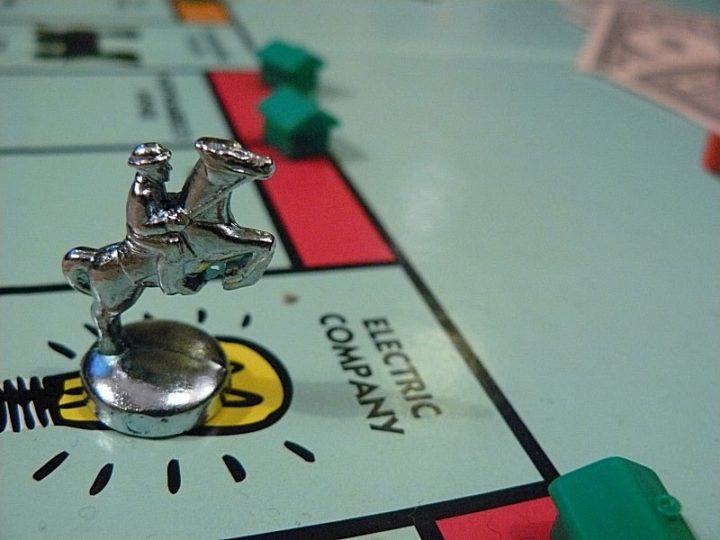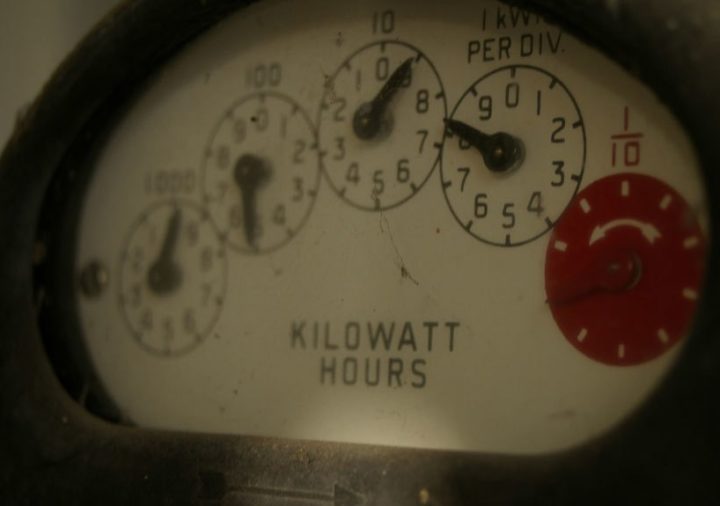Monopoly money: Who's misleading who?
Britain's power distribution companies shoot own feet in response to ECIU report
By Richard Black
Share
Last updated:
The response from the UK's electricity distribution companies to our report on their rather large profit margins makes interesting reading.
Mainly because in seeking to discredit our analysis, they've inadvertently highlighted exactly the points we were making.

Our starting point for this analysis was the much larger report from the Committee on Climate Change earlier in the year. It concluded that overall, UK energy bills aren't higher than in comparable countries. But, it said, electricity costs for industrial and business customers do seem relatively high.
The Committee was unable to pin down the precise reasons, but suggested that transmission and distribution charges - the price of taking gas and electricity from point of origin to point of use - seemed to be one area where UK customers pay more than in other similar countries.
So we decided to take a look at one group of companies - the electricity Distribution Network Operators (DNOs). They basically take electricity from the high-voltage National Grid system and bring it to homes and businesses.
There are six companies in eight regions, each one a natural monopoly. And in Britain - unlike every other European nation bar Bulgaria - we entrust the job to private companies. In a non-competitive system, the potential for excess profits exists - and that's important, because DNO profits come off our bills.
As we found in our report, the six companies made, over the last six years for which data is available (2010-15), an average annual profit of 32%. That's big, by any measure - beyond any other sector that we could identify.
More remarkably, half of this profit, on average, is being paid out as dividends - usually to owners outside the UK. Do the maths, and the profit equates to £27 on the average annual household energy bill - the dividends to £13 per year.
Is it excessive? Conservative MP John Penrose, a long-term consumer champion in this area, thinks so, accusing the regulator Ofgem of being 'asleep at the wheel' as DNOs 'over-charged for years'.
So does Citizens Advice. It concluded recently that companies involved across the energy network sector (gas and electricity) were collectively making about £1bn per year more profit than they should - and that bill-payers are due a rebate.
It is worth stressing that the period analysed by Citizens Advice is the current 'price control' period (2015-2023) and is therefore mainly about projections, while our figures are taken from accounts that largely precede this process. And yet the broad thrust of the findings align.
In our report, we compare the UK situation with that in France and Germany. There, the equivalent companies are regulated on profits and return about a 7% profit margin. That's a quarter of the UK average. If UK DNOs cut their profits to this level, it would knock about £20 off the average annual household bill.
Deep rejection
The DNOs themselves - represented by their lobby group, the Energy Networks Association - 'totally reject' our report, going so far as to tell journalists it's 'deeply flawed'.
Interestingly, though, their analysis confirms our own.

They note that electricity distribution costs amount to 23p per day on bills.
That's £84 per year. And 32% of this - the average annual profit margin - comes to £27 per year, exactly the figure we gave.
Our data was drawn directly from the DNOs' annual returns to Companies House, and it's notable that the Energy Networks Association hasn't actually queried those figures at all.
Rather, they're arguing for use of a different metric, claiming that their profits should be properly measured as return on investment, not on turnover.
It's an interesting argument for a private company to make - one I don't remember hearing from Sainsbury's, say, or Unilever, or Manchester United.
Their argument is that the network companies are investing big money in essential network upgrades - £40bn between 2010 and 2013, an average of £3bn per year, they say.
That may well be true. But in the context of our analysis, it's also irrelevant - 'deeply misleading', in fact.
The investment isn't some act of philanthropy by these six companies - it's their job.
Furthermore, all of that money comes from customers' bills. Even the cash Ofgem provides to encourage innovation is added onto energy bills. It's our money; and we're effectively, through the medium of Ofgem, trusting the DNOs to use it frugally.
How much comes in and how much goes out, and therefore how frugal they are, is all accounted for in the annual Companies House returns. Including the 32% annual profit margins and the 15% payout to shareholders.
The difference between DNOs and supermarkets is that the DNOs are in the privileged position of being outside competition - which makes analysis of their profit margins more relevant, not less, especially when the UK's higher network costs are a factor pushing up bills.
In fact, the figures raise the question of whether we should even be talking about the DNOs or their parent companies as 'investors' at all. Arguably, with 15% of annual turnover flowing out in dividends (and largely out of the UK), 'exvestors' might be a better term.
Far from 'crippling'
Overall, the notion that Britain has 'cripplingly' high energy bills isn't true.

If you look across the EU-15 (the Western European nations of the EU), then both our domestic gas and electricity prices are below average (and on gas we're the third lowest in the group).
The nation's total household expenditure on electricity has actually fallen in real terms, from £13.8bn in 2010 to £11.9bn in 2016.
However... no-one likes paying more than they should for anything, and there is too the thorny issue of business electricity bills.
Because of the potential challenge this poses to competitiveness, the government has now asked Oxford University academic Professor Dieter Helm to write up his own analysis.
If he's to do the job properly, he can't ignore the question of whether profits made by companies in the energy sector are excessive. Especially monopolies such as the DNOs, from whom consumers can't switch away.
And it's not just about short-term profits. Long-term, the UK stands to benefit massively from the transition to a smart, decentralised electricity system that the government says it wants - to the tune of shaving £8bn per year from our collective energy bill.
The transition can only happen efficiently if the DNOs play an active and constructive role. The view of companies driving the smart power sector is that some DNOs are on board to some extent, and others not at all.
By coincidence, the Energy Networks Association has also just published its response to the latest Ofgem consultation on regulatory reform. The good news is that the DNOs are willing to innovate more than they do currently - but, at every turn, they'll need more 'incentivising'.
However, they also (unsurprisingly) push back against recommendations from Citizens Advice designed to stop what the latter sees as excessive profiteering from carrying into the next price control period, by suggesting that factors behind this money-making (the cost of capital and RPI-linked inflation used in calculations) remain unchanged.
Some might argue that if you're making an 32% annual profit margin and sending half of that away in dividends, you shouldn't need any more incentives to innovate, especially when innovation is part of your job.
But that's a judgement call. Unlike the figures in our report, which are drawn from companies' own returns, which have not been queried, and by which we stand. 'Inconvenient' it might be - 'misleading' it ain't.
*This article was updated on September 5th, it previously incorrectly stated that financial incentives from Ofgem to encourage innovation were funded through general taxation, rather than via bills.
Share